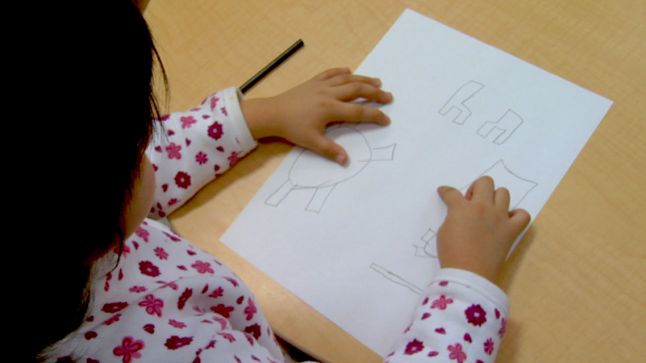Series: About Early Math
Math Opportunities Hidden in Geocache App

Geocaching is an activity that uses the GPS technology on your mobile device to allow for some real-life treasure hunting. Members of this community are invited to hide small boxes—”geocaches”—and log their location on a free, downloadable app. Once the geocache is logged, it will show up as a blip on the map of other users of the app, who can then find it for themselves.
There is almost always a “logbook” inside the geocache, where people can write their names and the date of discovery. Depending on the size of the box, users also may leave other items—notes, trinkets, stickers, etc.—with the assumption that other discoverers can exchange items.
Making it a point to find geocaches during a vacation, or depending on your location, a trip to the corner store, can mathematize an otherwise ordinary situation. Using maps is a superb way to strengthen children’s spatial reasoning skills. Letting them take the lead in navigating the way to a geocache is a great way to get kids practicing their math in a way is both fun and practical.
Children inherently have strong spatial reasoning skills. In his presentation at Erikson Institute’s International Symposium, researcher Jan de Lange makes this point succinctly.
“Imagine you have a house with forty rooms. I can bet you that your three year old will know exactly where the sweets or his favorite toys are after you show him once–in three dimensions!”
In Walk with Rosie, a part of our Focus on the Lesson video series, preschool students were able to draw accurate maps of the route they took through an obstacle course set up in their classroom. Bolstering these inherent strengths with real-world map use, therefore, can start very young.
According to the official website, there are 548 geocaches hidden within a 5-mile radius of Erikson Institute in Chicago, and millions more hidden worldwide. On the app, each geocache is given a rating on how difficult it is to find, so users can challenge themselves accordingly.
Do note that geocaches and their contents are produced entirely by users of the app; therefore, upon discovering a geocache, adult supervision is suggested (although hopefully not needed!).